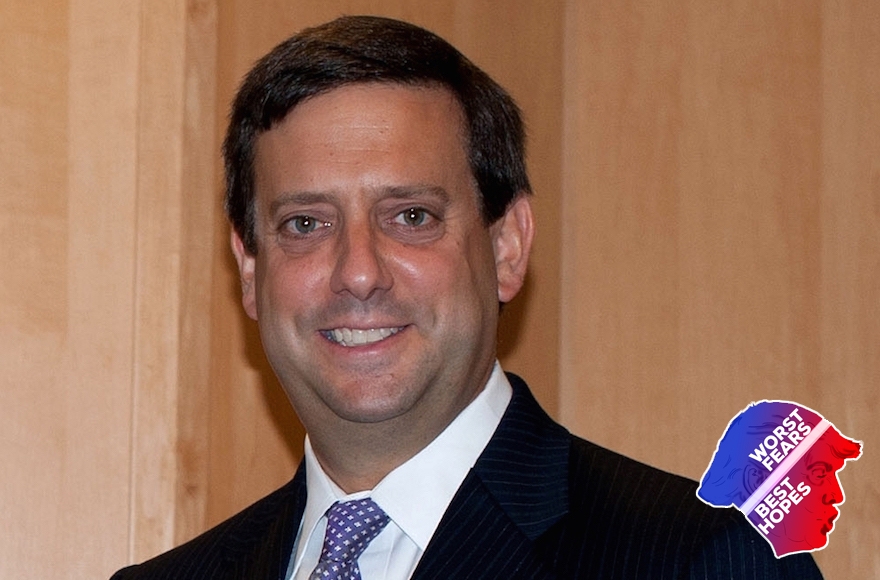Editor’s note: The upset victory by Donald Trump in the 2016 elections stunned a Jewish activist and leadership class that is at times as divided as the electorate at large. JTA asked some of those leaders to describe their concerns and expectations in a series of brief essays, “Worst fears, best hopes,” that will appear regularly between now and Inauguration Day.
(JTA) — A majority of Orthodox Jews voted for Donald Trump for president. They did so upon the twin bases of rejecting Clinton as the candidate of continuity (for a “third Obama term”) as well as policies Trump proposed on key issues.
The foremost reason Mr. Trump earned their votes was the belief that he will be best for the security of Israel. Trump vigorously criticized President Obama’s policies toward Israel. Indeed, Trump’s election will have a beneficial impact before he even takes the oath of office on Jan. 20. It likely makes a rumored lame-duck peace process move by Mr. Obama, at the United Nations or via a presidential address, unlikely, if not irrelevant. Moreover, Mr. Trump making good on his firm commitment to finally relocate the U.S. Embassy to Jerusalem may send the most useful message to Israel’s enemies in decades. As well, Trump regularly spoke out against the U.S.-Iran nuclear deal and promised to abolish it; those who voted for him are counting on him delivering on that promise.
On the domestic front, Mr. Trump committed himself to improving education opportunities for American children through school choice initiatives. The cost of Jewish education is the preeminent domestic issue in many Jewish households. Mr. Trump broadly spoke of redirecting $20 billion in federal education funds to school choice programs. Such a reform could spark new educational opportunity in America and dramatically address the challenge of Jewish education affordability.
Last but not least, religious liberty is the bedrock upon which American Jewry has flourished. It didn’t get much discussion in the campaign, yet it motivated traditionalists in many faiths to vote for Trump. America is in the midst of a fractious debate over the interplay between expanding gay rights and religious liberty. A compromise approach that delivers fairness for all will take real leadership from the White House and bipartisan leaders in Congress. More broadly, Mr. Trump must finds ways — in rhetoric and action — to embrace the value of American society’s religious and ethnic diversity and thus make good on his commitment to be the president for all Americans.
(Nathan J. Diament is the Executive Director for the Orthodox Union Advocacy Center.)
Previous articles in this series can be found here.
JTA has documented Jewish history in real-time for over a century. Keep our journalism strong by joining us in supporting independent, award-winning reporting.






